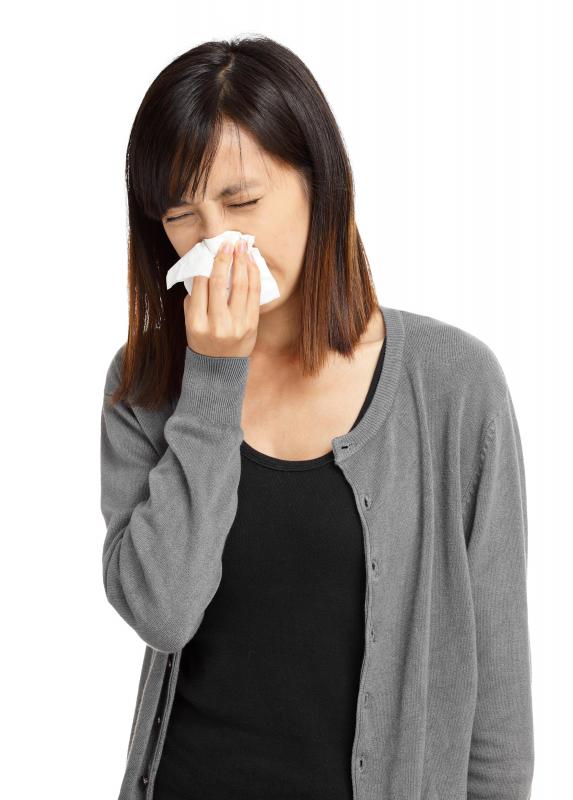At WiseGEEK, we're committed to delivering accurate, trustworthy information. Our expert-authored content is rigorously fact-checked and sourced from credible authorities. Discover how we uphold the highest standards in providing you with reliable knowledge.
What is a HEPA Rating?
A HEPA rating is a statement indicating the minimum percentage of a specific size particle that a filter is able to trap. HEPA stands for high efficiency particulate air filter; for a filter to earn this designation, it must have a specific minimum rating to qualify. To be considered a true HEPA filter, the device must be able to trap at least 99.97% of particles with a size of 0.3 microns (micrometers) that enter the filtration system. This HEPA rating is expressed as a minimum efficiency of 99.97% although some filters have even higher efficiency ratings.
HEPA filters are used in many air purification applications to protect health and safety. These applications include airplane cabins, hospitals, laboratories, and a variety of other public and private facilities. They are also used in a few models of vacuum. It should be noted that many vacuums, however, state they have a "HEPA type filter" which actually isn't a filter with a real HEPA rating.

HEPA rated filters are designed to trap particles in the air that are so small they can't be seen, but they can pose a risk to health and safety. Some examples of these particles include allergens, bacteria, and smoke. Since these particles can have a negative impact on health, filters with the HEPA rating are very beneficial.
The HEPA rating partially depends on the size of the particles a filter is able to trap. HEPA filters need to be able to trap the overwhelming majority of particles as small as 0.3 microns. One micron is equal to one thousandth of a centimeter, one millionth of a meter (0.000001 m), or 1/24,500 inch; it is approximately 100 times smaller than the diameter of a single strand of human hair. These particles are microscopic and can't be seen by the unaided human eye.

Filters with a HEPA rating need to be able to provide consistent performance at the stated minimum efficiency of 99.7% of airborne particles measuring 0.3 microns in diameter. Some ultra-HEPA filters have a minimum efficiency of 99.999 percent, exceeding the rating needed. These minimum rating standards were set by the U.S. Department of Energy and have worldwide acceptance. The European Union uses different terminology for the ratings, but the standards are similar. The EU designates filters with a minimum efficiency of 99.75% as "HEPA class H13", and those at 99.975 percent are referred to as "HEPA class H14."
AS FEATURED ON:
AS FEATURED ON:












Discuss this Article
Post your comments